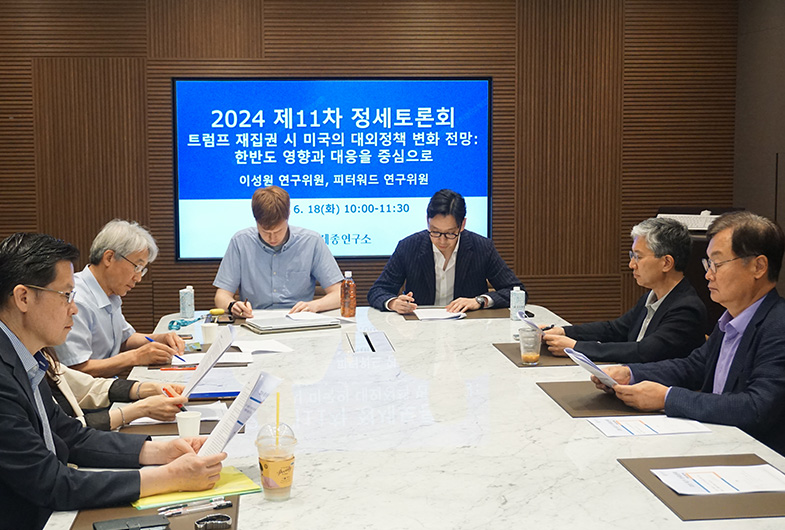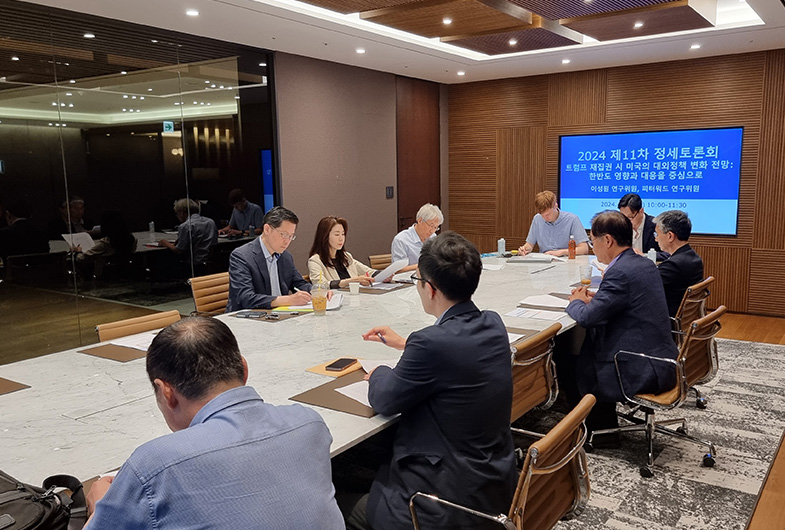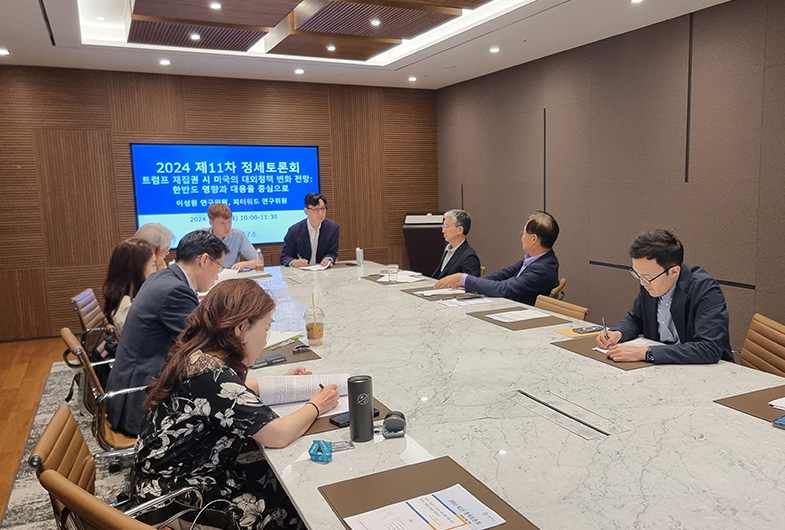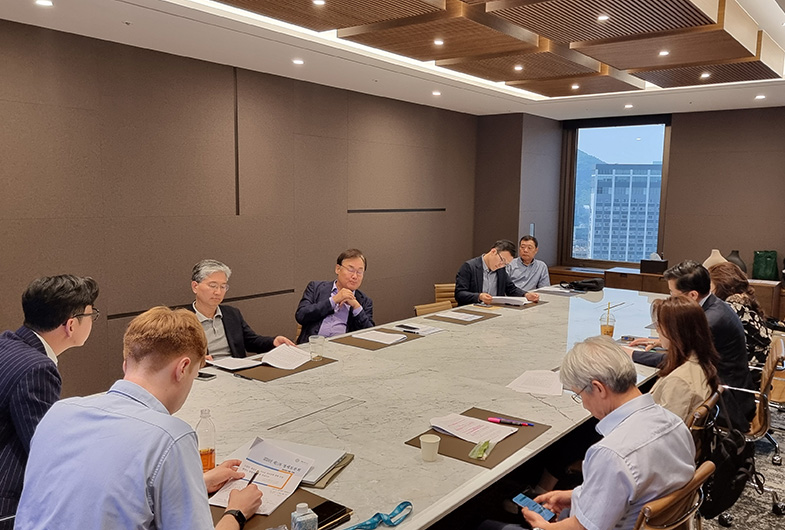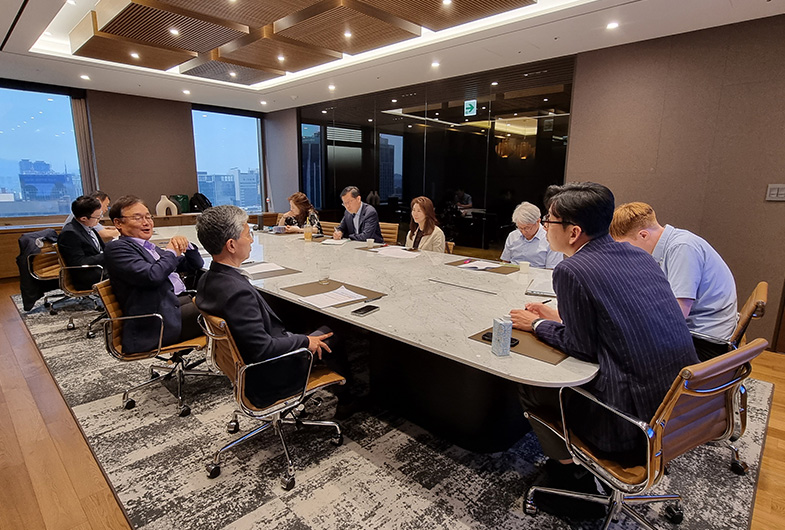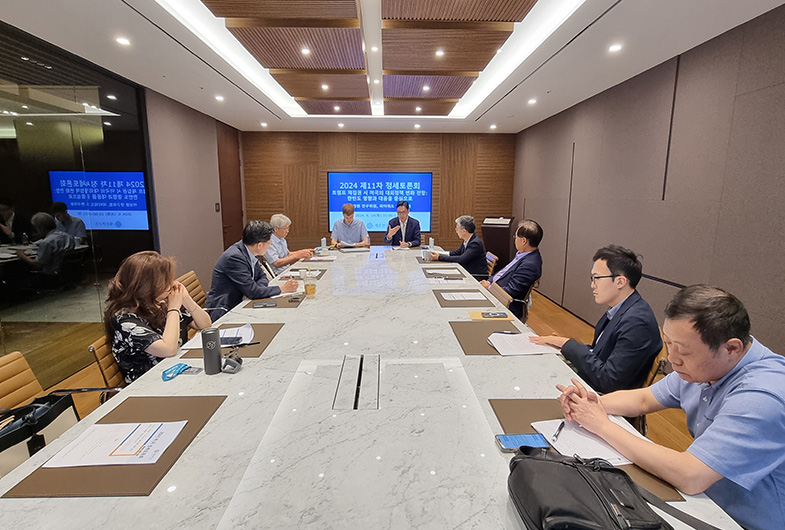At the Sejong Institute's 10th Colloquium of June 18th, 2024, Research Fellow Sungwon Lee and Peter Ward presented “U.S. Foreign Policy Changes Under a Trump Presidency: Focusing on Korean Peninsula Implications and Responses”
The Colloquium was moderated by Jungsup Kim, Vice President of the Sejong Institute.
As the race between Trump and Biden continues to be close in several key states in the U.S., and as the former president's conviction has not caused a significant drop in his popularity but expects to rebound due to the rallying of partisan loyalties, the possibility of his re-election cannot be ruled out, and will change the U.S. foreign strategy, characterized by 'America First' and 'transactional'.
For U.S. allies, who prefer mutual trust and consistency in policy, Trump's foreign policy is perceived to create tension and cause problems in maintaining alliances. Moreover, the second Trump administration is expected to have a weaker structure and functioning of traditional policy advisory groups compared to the first administration, which could lead to a more unfiltered reflection of Trump's foreign policy preferences in alliances and international negotiations.
As the U.S. policy against China may intensify, South Korea could face 'Passing', 'abandonment', and 'entanglement'. South Korea could be excluded from direct arms control negotiations with North Korea; the uncertainty that U.S.-North Korea diplomacy will not lead to improved inter-Korean relations and the possibility of North Korea's demands (such as reducing the number of USFK and weakening extended deterrence); or it could become complicit in a U.S.-China competition over Taiwan, with the U.S. intention to maximize the military capabilities and facilities of U.S. allies.
